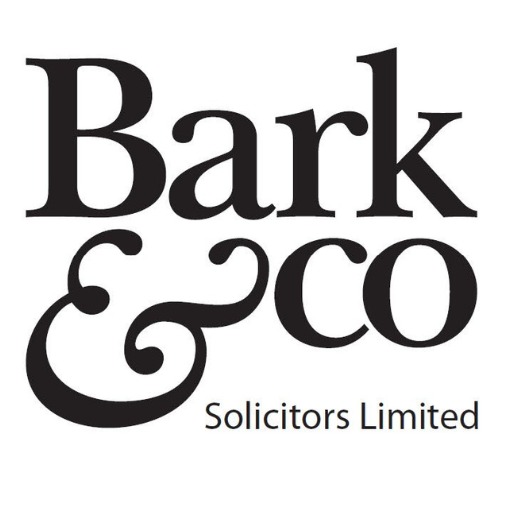Civil Procedure
The procedure governing harassment claims in the civil court is contained within the Civil Procedure Rules or CPR as they are commonly known as.
CPR 65 (proceedings relating to anti-social behaviour and harassment) governs court cases commenced under the Protection from Harassment Act 1997.
CPR 65.27 states that these rules govern proceedings commenced specifically under section 3 of the Protection from Harassment Act 1997.
CPR 65.28 states that a claim under section 3 shall be subject to the Part 8 Procedure and if commenced in the High Court, it must be in the Queen’s Bench Division and if in the County Court, at any County Court hearing centre, but will be transferred as appropriate to the County Court hearing centre where the Defendant resides or carries on business or where the Claimant resides or carries on business.
Practice Direction 65 Para A14.1 warns that if the wrong County Court is used to commence a claim, then a claimant should consider the potential delay which may result for transfer to the appropriate County Court hearing centre.
CPR 65.29 and 65.30 deal with Applications for issue of a warrant of arrest under section 3(3) of the Protection from Harassment Act 1997.
The Part 8 Procedure is an alternative procedure for commencing claims (usually claims are commenced under the Part 7 procedure).
There may be a requirement to adhere to the pre-action protocol. This may consist of sending a pre-action protocol letter (cease and desist) asking for the harassment to stop and asking for undertakings. Failure to do this, may have costs consequences.
A Part 8 Claim Form is used (Form N208). Witness evidence is attached to the Claim Form when issued and filed at court and served on the other parties to the claim.
However, it may also be possible to utilise the general form of application for an injunction (Form N16A). This is sometimes the preferred route, especially in County Courts and/or where a litigant in person is making the application. This form gives the option of making an application without issuing a claim form and making the application under Part 8.
CPR 8.2 provides the mandatory information that a Part 8 claim from must include.
The acknowledgment of service should be served with the claim form. CPR 8.3 and 8.4 provide the strict requirements pertaining to the acknowledgment of service.
Rules relating to evidence are covered in CPR 8.5 and 8.6.
A Defendant can object to the use of the Part 8 procedure and this is governed by CPR 8.8. Please note that certain types of harassment claim, for example those where notice is provided to the other side, claims involving a breach of contract, negligence, personal injury, a boundary / property issue, those where there is a substantial dispute of fact, may be, with agreement of the Defendant, best commenced using the Part 7 Procedure.
Whilst a Claim Form commences a claim for harassment, for very urgent matters an application notice is issued at court as well. CPR 23.1 defines an application notice as “a document in which the applicant states his intention to seek a court order.” Usually for harassment matters, the application notice is the document in which the applicant states his intention to get a quick interim injunction. However please also note the availability of the general form of application for an injunction (Form N16A) as described above.
CPR 23 provides the general rules about applications for court orders. For urgent matters, an application may be issued at court, pre-action (i.e. before a claim from has been issued). Usually in this situation an undertaking is provided to issue a Claim Form as expeditiously as possible. Usually three clear days’ notice have to be provided for the hearing of an application notice (although permission of the court can be asked for if this time is to be abridged or the application is to be heard without the Defendant being present). The application notice will usually fix a date for the hearing of the interim injunction.
If the application is extremely urgent and cannot be made during normal court hours then an out of hours application, to be heard in person or by telephone can be made. The applicant should telephone the security officer at the Royal Courts of Justice on 020 7947 6000 where they will be put in contact with the clerk to the appropriate Duty Judge (or the appropriate area Circuit Judge / local Duty Judge where known). Injunctions will be heard by telephone only where counsel or solicitors are acting for the applicant.
Court fees have to be paid for the issuing of a clam form or application notice or the general form of application for an injunction. A list of civil court fees is contained on leaflet EX50.
The power of the court to grant an interim injunction is contained within CPR 25 (1) (a). Costs are usually not awarded at an initial interim injunction hearing.
Pursuant to CPR 39.2 (3) certain types of hearing may be conducted in private. Practice Direction 39 at 1.5 (9) states that proceedings under the Protection from Harassment Act 1997 may be in private. Pursuant to 1.4 of the Practice Direction, the decision as to whether to hold a hearing in private must be made by the judge having regards to any representations.
After the interim injunction hearing there may be a return date hearing. This is usually within 7 or 14 days after the initial interim injunction hearing. This provides a chance for the Defendant to try and get their house in order, including by providing fuller instructions to their lawyers and getting their evidence together. At the return date hearing the Judge will decide if the injunction is to continue. Costs may be awarded at the return date hearing.
After the initial injunction hearing/return date there maybe be directions to a final trial of the matter, including for further evidence to be disclosed. However sometimes, a judge will want to deal with the whole matter at an initial injunction hearing and effectively dispose of the need for further hearings including the need for a trial. Undertakings may be offered by the other party and this may negate the need for any hearings as undertakings may be used in lieu of an injunction. The general form of undertaking is contained on Form N117.
Part 8 claims are usually expedited, and a final trial could be as early as one month after the initial injunction hearing or much later (depending upon court resources and timetabling). Costs are usually awarded after a final trial.
Under CPR 44.2 (2) the general rule is that the unsuccessful party will be ordered to pay the costs of the successful party. However the court may make a different order. The court has discretion as to whether costs are payable by one party to another, the amount of those costs and when they are to be paid.
A breach of a civil injunction can be a contempt of court, punishable by an application for committal. If an undertaking has been properly served and contains a court seal then a breach of it may also be actioned by an application for committal. Applications and proceedings in relation to Contempt of Court are governed by CPR 81.
A breach of a civil injunction can also be a criminal offence. A report should be made to the police. If they are slow or decide not to prosecute, then a private criminal prosecution may be taken out.
Useful links to the Civil Procedure Rules
- Pre-action conduct and protocols
- CPR 8 (Part 8 procedure)
- CPR 23 (application notice)
- Practice Direction 23 (application notice)
- CPR 25 (interim injunction)
- Practice Direction 25 (interim injunction)
- CPR 39 (privacy)
- CPR 44 (costs)
- Practice Direction 44 (costs)
- CPR 65 (harassment)
- Practice Direction 65 (harassment)
- CPR 81 (contempt)

